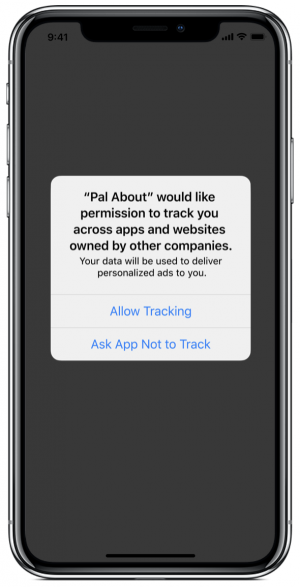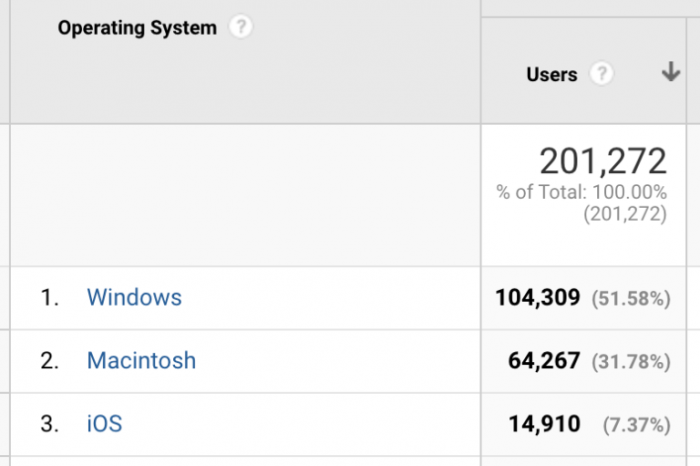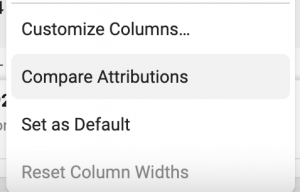During our PHC – Elite strategy session this week, one of our members presented an issue that many agencies, consultants, and advertisers will be facing: How to prepare clients, who are unaware of the current landscape, for the impact of iOS 14 and a future of less tracking.
Long-time clients will expect results that are not only as good as last year but better.
That, of course, may not be realistic. We don’t know just how much the iOS 14 ATT prompt and the new advertising landscape will impact all businesses, but there are some specific steps we should take to set expectations and help them prepare.
Explain iOS 14 in Simple Terms
Help your client understand what is happening and that it will impact the performance of their ads.
1. All iOS 14 users will be asked whether they want to allow their app to track them across apps and websites.

This is not a prompt that can be hidden or avoided.
2. We expect many or most users to ask not to be tracked. This will have a direct impact on three main things:
– Reporting conversions (some won’t be counted)
– Optimization (it will be more difficult to isolate those most likely to perform your desired action)
– Targeting (those who opt-out won’t be targeted or excluded)
Prepare Them for Direct Impact
If your client’s audience isn’t on iOS devices, the direct impact they’ll face may be limited. But you should verify this first.
You can find this in Facebook Analytics by creating a filter for people who used a particular app or device (select iOS for Device OS).

You can also use Google Analytics by going to Audience > Technology > Browser & OS and then select “Operating System.”

This will give you the potential range that the iOS 14 prompt may directly impact conversion reporting and targeting. If 8-percent of your audience is on an iOS device, you should expect conversions and audience sizes to shrink by up to 8-percent.
Prepare Them for Indirect Impact
Facebook is making global changes to its ad products that will impact all advertising, regardless of iOS 14 exposure.
1. 8-Event Limit
Once the prompt goes live for the Facebook app, your client will be limited to optimizing for eight events per domain. If all events happen on their own domain, they’ll need to limit optimization to eight events or face delays when they make changes.
If they have events that fire on other domains they don’t own, they may no longer be able to optimize for those events — which may lead to poor results.
Take a look at how this client typically optimizes and if anything will need to change or will no longer be possible.
2. Attribution Setting Changed to 7-Day Click
Attribution is how Facebook gives credit to an ad for a conversion after a user clicks on or views an ad without clicking. Prior to mid-January, Facebook used 28-day click and 1-day view as the default. That then changed to 7-day click and 1-day view. Once the prompt goes live, it will move to 7-day click only.
Run a report of historical campaigns for up to 37 months using the Compare Attribution option to get a sense of where your conversions have fallen in the past. Then export it so that you have that information later.

What percentage of conversions tend to happen outside of a 7-day click? How many happen within a 1-day view? These can be eliminated from the default reporting going forward (1-day view will still be available while 28-day click will not be).
This will give your client an expectation for how much conversions will drop from the change in attribution alone.
Understand Facebook Advertising’s Role in Results
How much do you spend in a month? How many clicks to the client’s website do your ads generate? What percentage of your client’s overall conversions can be attributed to ads?
If ads tend to represent close to 100% of a client’s conversions, expect that trend to continue (assuming no change in behavior). If the client’s conversions remain at 100 per month but Facebook’s reporting drops from 100 to 50, you can make an educated assessment that the missing 50 are still coming from your ads (especially if ad spend and clicks to website are unchanged).
Prepare Their Account
Your client needs to have their own Business Manager. They need to have their own pixel. They can share their pixel or ad account with you to manage their ads, but it should start with the client’s Business Manager account.
From there, they need to do the following:
1. Verify their domain.
2. Configure their eight events for optimization.
You may be able to assist them with this, but it needs to happen within the client’s Business Manager.
Prepare Them for an Adjustment Period
Despite all of this preparation, no one truly knows how much this will impact them. Help your client understand that there will undoubtedly be an adjustment period.
What you have always done may no longer work, or work as well. You’ll need to experiment. You’ll need to try new things and get creative. Testing windows will be necessary. In the process, you will fail and find what works.
This is what they pay you for. Their ads can’t be run by a robot. This is where you earn your fee.
This is the Beginning
Help your client know that Facebook is concerned. They expect their ads to perform less effectively. This would be a big hit to their revenue and potentially to your client.
But abandoning Facebook advertising isn’t necessarily the solution. The iOS 14 prompt is one of many shoes to drop and there will be a storm of shoes to come. Tracking will be more difficult, which will lead to difficulties with reporting, optimization, and targeting.
It will likely get worse before it gets easier. You may need to make adjustments in budgets and where they are committed. But figuring all of this out will take time.
Your Turn
How are you preparing your clients for these changes?
Let me know in the comments below!






